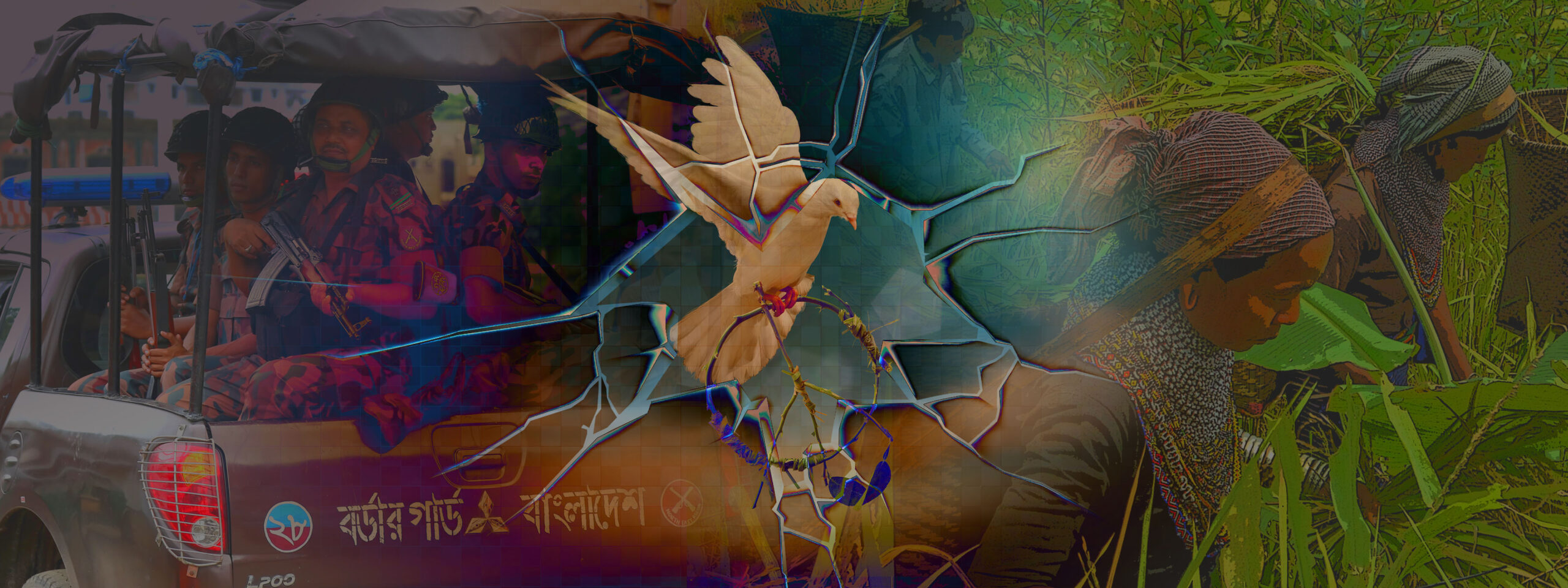|
Getting your Trinity Audio player ready...
|
O
ne was picked up at his workplace and another at the market. Yet another was home when soldiers came and took him. In all, five men in a district of the Chittagong Hill Tracts (CHT) were taken by the Bangladeshi army last January. Then at a military camp, they were beaten up to a point that they sustained serious injuries.
“I have never been beaten like this,” says Suman, who is using a pseudonym for security reasons. “The army picked up five of us and beat us severely. I still can’t walk properly.”
Earlier, all five had been at yet another protest over yet another alleged land-grabbing by a Bengali settler of tribal land. Suman believes that they became targets of the military because of this. But he and other jumma or CHT Indigenous peoples are no longer surprised that they were brutally assaulted by those who are supposed to keep the peace. They say that what happened was just one of the daily violent incidents that occur in CHT, and where the victims are usually the jumma.
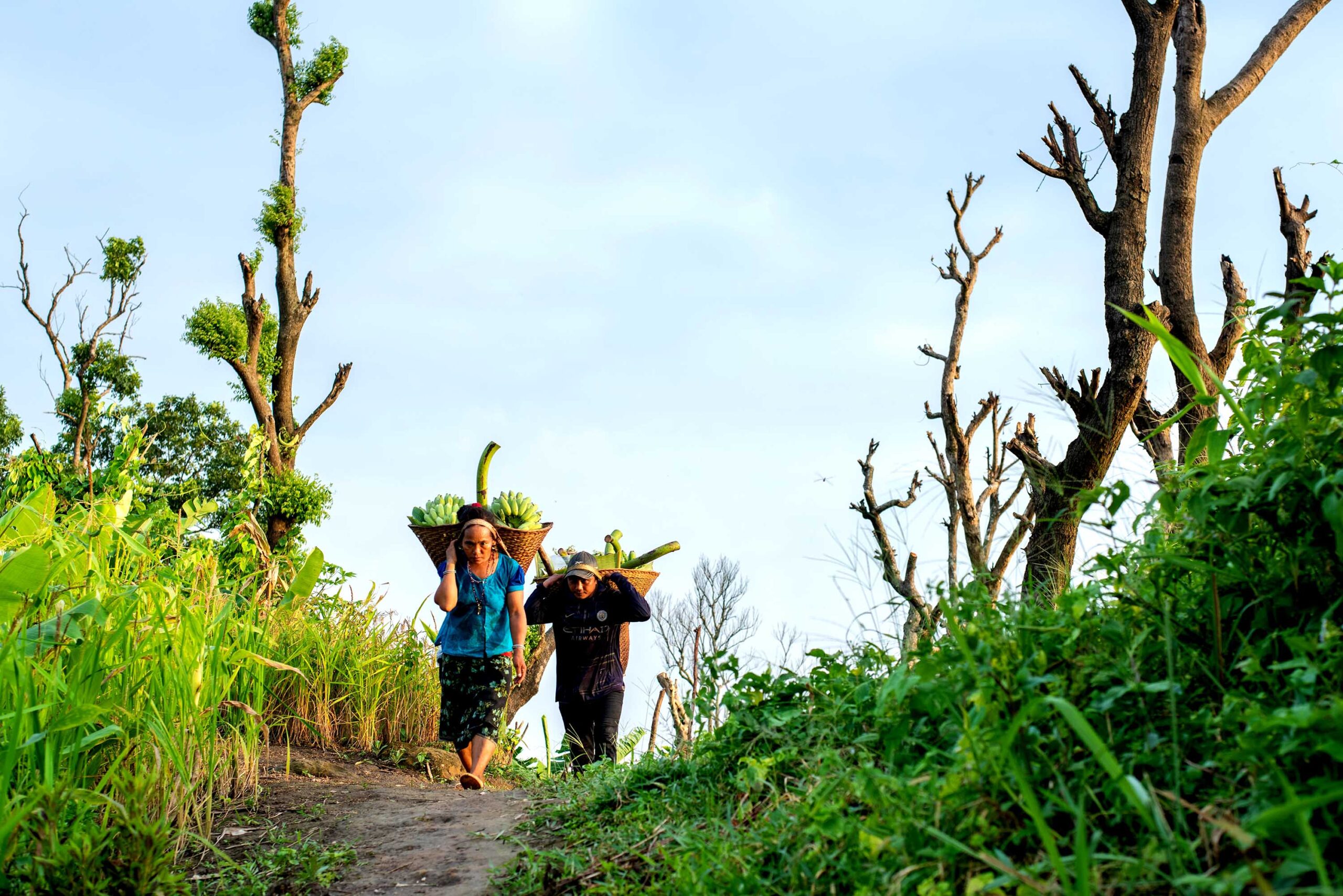
They also say such violence will just keep going on so long as authorities keep holding back the full implementation of the 1997 Chittagong Hill Tracts Peace Accord.
“If the provisions of the peace agreement are fully implemented, then peace will be possible in the CHT,” Suman says. “We are peace-loving tribals but the government and other forces with its support are constantly oppressing us. This cannot be accepted.”
Unfortunately, having all the provisions of the peace accord implemented may not happen anytime soon.
In a 2023 opinion piece for the Daily Star, Mangal Kumar Chakma, information and publicity secretary at the Parbatya Chattagram Jana Samhati Samiti (PCJSS) – a political party representing the Indigenous tribes of CHT – pointed out that the government had yet to implement even any of decisions made by the CHT Accord Implementation and Monitoring Committee. The Committee was also without any logistical, manpower, and financial support, he said.
“If the committee that is responsible for implementation and monitoring of the Accord is kept at a standstill,” wrote the PCJSS official, “then how will the Accord be implemented?”
Tracts of trouble
Located in southeastern Bangladesh, the Chittagong Hill Tracts covers the country’s three hill districts. Ethnic Bengalis make up more than 98 percent of Bangladesh’s 174 million people, but the country has at least 50 other ethnic groups. Of these, at least 11 are Indigenous to the CHT, and among whom the Chakma and Marma have the largest populations.
The jumma clamored for self-rule in the CHT shortly after Bangladesh separated from Pakistan in 1971 and became independent. At the time, hordes of Bengali settlers had begun coming into the region, apparently at the instigation of the central government and with the backing of the military. Landgrabbing allegedly by the settlers and the military soon became frequent, as did torture and rape.
By 1973, the jumma had taken up arms and were attacking not only the military, but also the Bengali settlers. This led to the militarization of the region and a bloody bush war that would last for more than two decades. By the time the peace accord was signed by the Awami League government and the PCJSS, the political organization representing the 11 CHT Indigenous groups, thousands of lives, both civilian and military, had already been lost.
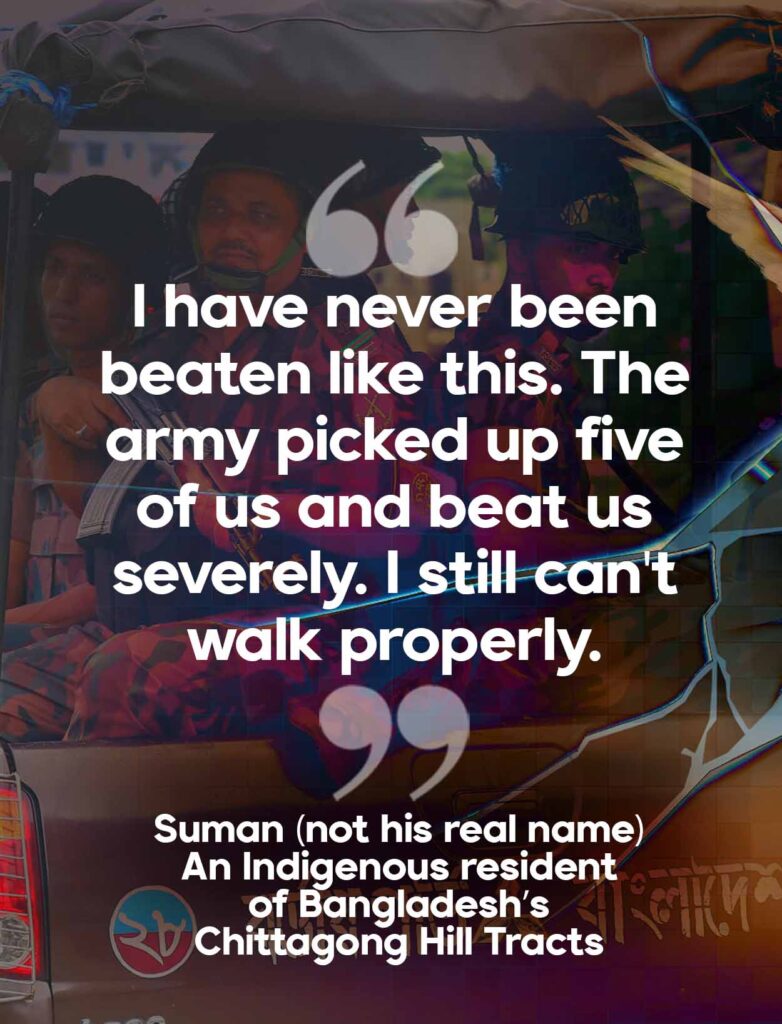
The Accord has 72 clauses in total. Some of these have been implemented, such as the setting up of the CHT Affairs Ministry and the repatriation of jumma refugees from India. But the main provisions have yet to be brought into effect.
For the jumma and rights advocates, the most crucial of these include the demilitarization of the CHT, the inclusion of jumma in any kind of work undertaken in the region, and the resettlement of the Bengalis outside of the CHT.
For the last point alone, they note that the 2022 census indicates that the Bengalis now slightly outnumber the jumma: 922,598 (50.06 percent) to 920,217 (49.94 percent). According to the 2011 census, the CHT population at that time was 47.18 percent Bengali (761,449) and 52.82 percent jumma (852,540).
The jumma and rights advocates also say that while a land commission was established early on to settle land disputes, it remains without power. Land-grabbing continues, with one of the major players being the military, which has expropriated jumma land for its own use, as well as for its sponsored projects. According to the latest annual human rights report of the PCJSS, 31 families were evicted or threatened with eviction by the administration and security forces in 2023 alone.
In December 2022, on the 25th anniversary of the signing of the 1997 agreement, U.N. Special Rapporteur on the Rights of Indigenous Peoples Francisco Cali Tzay also issued a statement in which he observed that the “repeated effort…to grab Indigenous Peoples’ land in the name of development, tourism, and eco-forest for national and international companies and other vested interests … disrespects the accord.”
“Honesty, sincerity, dialogue, good faith and mutual trust are indispensable for implementing the CHT accord,” said Tzay. “I urge the Government of Bangladesh to respect its commitments made at the U.N. and at national level, and move the full implementation forward through full, meaningful and effective participation of the Indigenous Peoples.”
Continued violence against the jumma
In April 2023, the government said that 65 of the Accord’s 72 provisions had already been fully implemented. But up to now, the jumma say they have yet to see this on the ground. The PCJSS report meanwhile said that in 2023 alone, 240 incidents involving human rights violations were committed in the CHT, allegedly by security and law enforcement forces, army-backed armed terrorist groups, communal and fundamentalist groups, Bengali settlers, and land robbers.
Cases that allegedly involved security forces included the arrest or temporary detention of 31 people and the entanglement of 53 individuals in false cases. The report also said 245 people suffered being beaten, injured, or harassed by security forces.
The report, though, attributed 57 incidents of human-rights violations to military-backed armed terrorist groups. These led to 19 people being killed, 17 beaten, 21 kidnapped, 22 detained, and about 1,000 from the Bawm ethnic community evicted from their villages, among others, it said.
Weeks before 2023 ended, in fact, four Indigenous activists were gunned down in CHT’s Khagrachari district. According to the rights organization International Chittagong Hill Tracts Commission (CHTC), vigilantes under military patronage carried out the murders.
“We strongly condemn the repeated targeted killing of activists by vigilante groups,” says CHTC Co-Chair Sultana Kamal.
Kamal adds that CHTC “believes that the killing of these young activists is a method to terrorize and intimidate the Indigenous community, as well as an attempt to suppress the emerging jumma leadership trend that has been persisting for years without any perpetrators being brought to justice.”
The CHTC, she says, is urging the central government to bring the murderers of the four activists to justice, and thoroughly investigate the allegations that the security forces are supporting armed vigilante groups.
Jumma community leader Tusher Chakma says: “We are never against Bengali; we want to live in peace. But when our land is dispossessed, when our brother is killed, when my sister is raped, when my house is burnt, we cannot sit silently.”
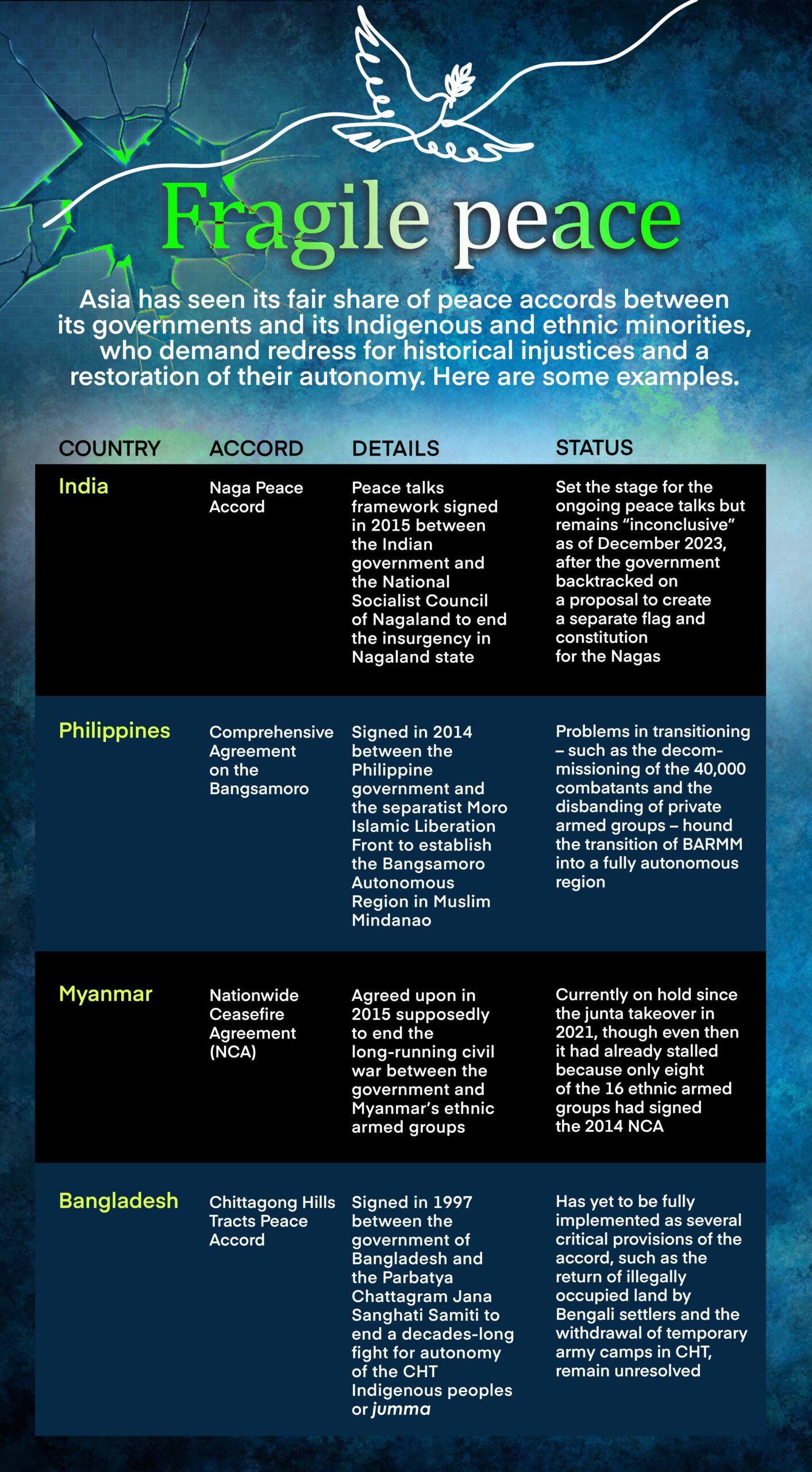
“We are Indigenous, but we are human,” says the 32-year-old from the CHT’s Rangamati district. “But by increasing the number of Bengali settlers in CHT with the help of the government and army, they are increasing the oppression and torture of us. By imposing divide-and-rule among us, Bengali are attacking us and killing us directly or through their agents.”
Bengali settlers also want peace
CHTC member Khushi Kabir says that the subculture of hegemony and control that has been introduced in Bangladesh is affecting the hilly regions.
“The Bengali settlers who were placed in the CHT would support state hegemony,” she tells ADC. “Although the people of Chittagong Hill Tracts surrendered their arms according to the terms of the peace accord, their rights and demands, especially the right to self-determination, were not recognized,”
But the Bengali settlers say they do not want unrest in CHT either. They add that the jumma are claiming CHT as an autonomous region and that this does not augur well for Bangladesh. Some settlers even suspect that the jumma themselves are creating conflict in the implementation of this demand.
Kazi Mujibur Rahman, chairman of the Civil Council in Chittagong Hill Tracts, the organization of the Bengali settlers, says that the jumma are “creating all these killings and unrest” due to a power play among themselves. Bengali settlers have no role to play here, he says. “We want to live here together with everyone,” Rahman says. “We don’t want to have any enmity with anyone but the tribals always behave aggressively toward us.”
Rahman denies that the army and the central government are patrons of the Bengali settlers, and that the settlers have been emboldened to oppress the indigenous of CHT as a result. Suman, however, maintains that the road to peace starts with the implementation and enforcement of all the provisions of the 1997 CHT Peace Accord. He is also clear about who picked him and four other jumma one day last January and then proceeded to beat them up.
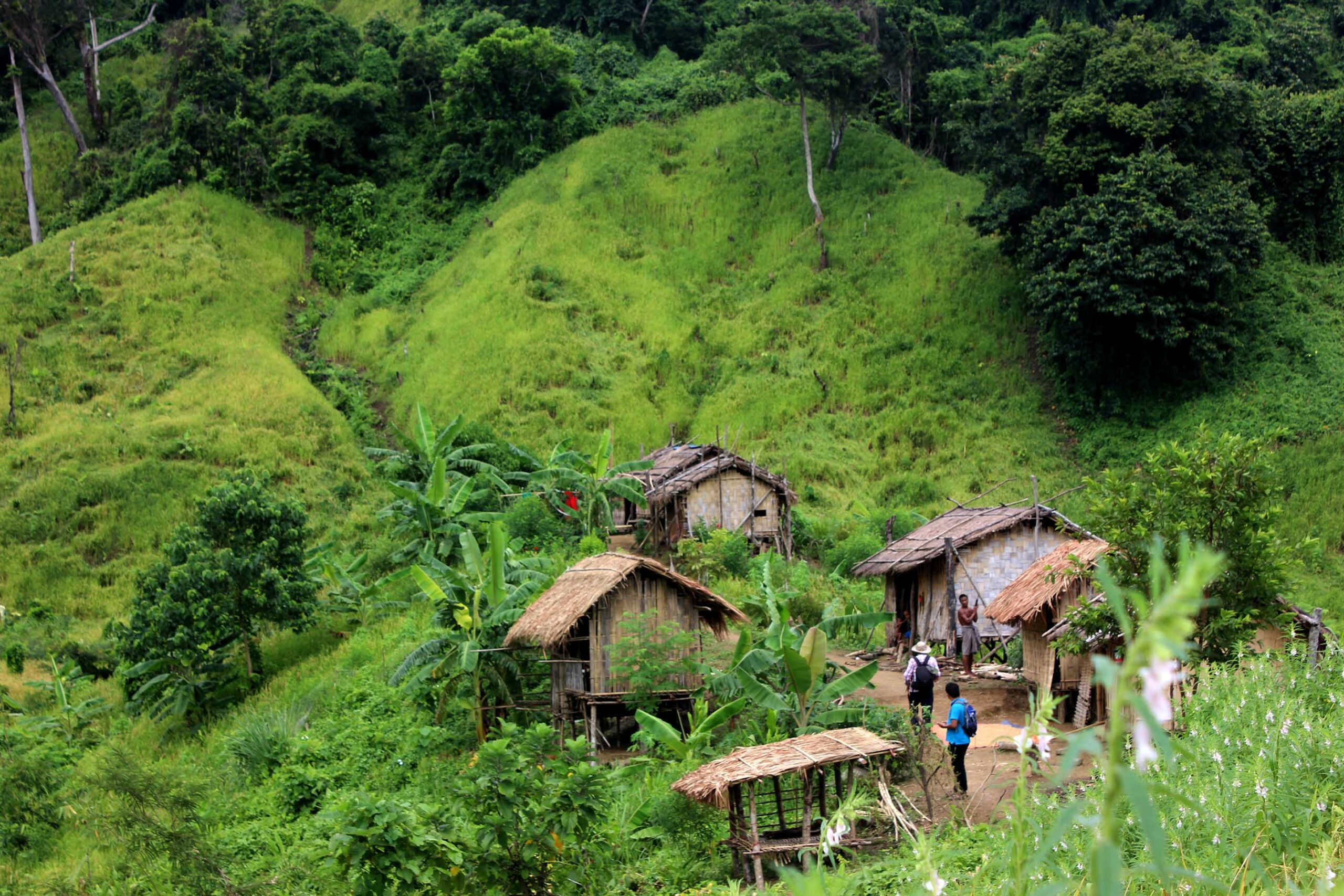
Suman recounts that after the assault finally stopped at around 9 p.m., they were told to remain at a government guest house and were not allowed to go to a doctor.
“We had hired a boat to go to hospital, but the army men ordered the boatman not to go,” recalls Suman. “A day later some army personnel came to the guest house and gave us some fruits and medicine.”
He also says that “the army men threatened us that they will file a criminal case against us with the police” if they ever told anyone else what they went through. Suman says he is still scared, but he also wants the jumma to be heard. ◉










